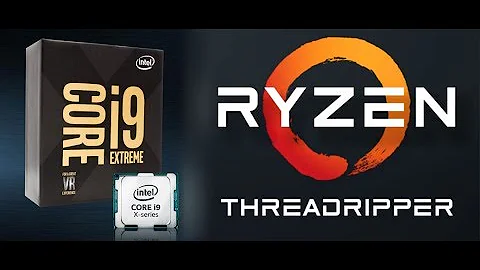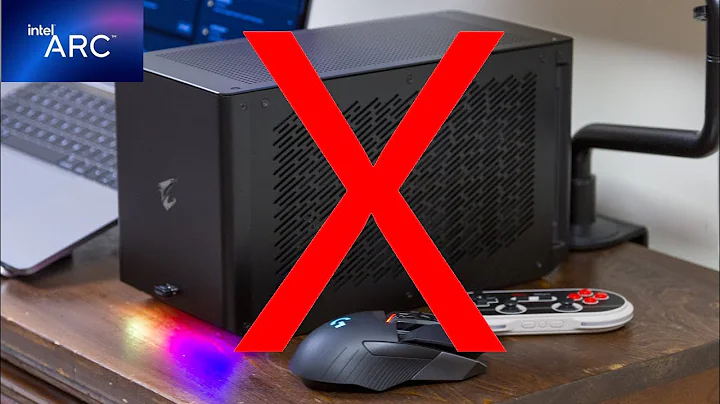Unraveling the Core Scaling Mystery: Debunking Marketing Spin
Table of Contents
- Introduction
- AMD's Flagship CPU: The 3950X
- Intel's Response to AMD's 3950X
- The Concept of Gaming Performance Scaling with Increased Core Count
- Ryan Shrout's Argument Against High Core Count CPUs
- Intel's Marketing Attempts vs. AMD's Advancements
- The Evidence: Performance Scaling with More CPU Cores
- The 3900X Test and Results: Performance Scaling Exceeding 8 Cores
- Intel's Claims and Inconsistencies
- The Importance of Independent Research and Data Analysis
- Conclusion
Introduction
The upcoming release of AMD's flagship CPU, the 3950X, has stirred up quite a buzz in the PC community. With its impressive 16-core configuration and potential to boost up to 4.7 gigahertz, enthusiasts are eagerly awaiting its arrival. AMD has touted it as their best gaming CPU yet, causing Intel to scramble with their latest attempt to compete. However, amidst the fervor and marketing claims, it's important to examine the legitimacy of gaming performance scaling with increased core count.
AMD's Flagship CPU: The 3950X
The 3950X is set to be AMD's most powerful gaming CPU to date. With its monstrous 16-core count and impressive clock speeds, it has system builders drooling at the possibilities. AMD's advancements in core count, combined with their 7nm process node, have enabled them to outperform Intel's mainstream desktop offerings. The 3950X not only offers more affordable and powerful options but also boasts backward compatibility and a consumer-friendly approach.
Intel's Response to AMD's 3950X
Intel, feeling the pressure from AMD's advancements, has resorted to marketing stunts to sway public opinion. Their latest attempt is a blog post by Ryan Shrout, Intel's chief performance strategist, where he derides any core counts higher than eight when it comes to gaming. However, Intel's claims and arguments raise questions about their motives and the validity of their statements.
The Concept of Gaming Performance Scaling with Increased Core Count
The concept of gaming performance scaling with increased core count has been tested before, though not specifically with the new AMD chips. The idea is simple: as more cores are added, the potential for improved gaming performance increases. While some argue that gaming doesn't Scale with CPU core counts above eight, there is evidence to suggest otherwise.
Ryan Shrout's Argument Against High Core Count CPUs
Ryan Shrout's blog post argues against high core count CPUs for gaming purposes. He claims that adding cores without a corresponding increase in sustained frequency and architectural design decisions does not result in better performance. However, there are several factors to consider when evaluating the truthfulness of this statement.
Intel's Marketing Attempts vs. AMD's Advancements
While Intel continues to promote their chips as the best for gaming, the margins between their offerings and AMD's are becoming smaller. The focus on small performance differences becomes less Relevant to the majority of users who won't Notice the distinction unless they are specifically monitoring frame rates. Intel's reliance on marketing stunts raises questions about the overall value of their products.
The Evidence: Performance Scaling with More CPU Cores
To test performance scaling with increased core count, we conducted our own experiments using the AMD 3900X CPU. By locking the frequency at 3.8 gigahertz across different core configurations, we were able to measure gaming performance in various scenarios. The results showed that performance scaling nearly follows a linear pattern from four cores all the way up to 12 cores.
The 3900X Test and Results: Performance Scaling Exceeding 8 Cores
In our tests, we observed significant performance scaling as we increased the core count on the 3900X. Different games exhibited varying degrees of scaling, with Shadow of the Tomb Raider showing particularly favorable results. While the differences may seem small in scientific terms, they are measurable and could Translate to tangible gains in real-life scenarios.
Intel's Claims and Inconsistencies
Intel's marketing claims regarding their CPUs being the fastest for gaming hold true. However, they cannot dismiss the fact that performance scaling exists beyond eight cores. The data presented in their own charts shows that performance scales with more CPU cores, albeit by a small percentage. Intel's arguments become inconsistent when comparing their chips to AMD's offerings.
The Importance of Independent Research and Data Analysis
It is crucial for consumers to rely on independent reviews and Collect their own data rather than blindly following marketing materials. Manufacturers have a vested interest in promoting their products as superior, often manipulating data and presenting it in a way that suits their narrative. To make informed purchase decisions, consumers must be educated, objective, and Seek out reliable sources of information.
Conclusion
AMD's upcoming release of the 3950X poses a significant challenge to Intel in the gaming CPU market. While Intel continues to rely on marketing stunts and claims of being the fastest, AMD's advancements in core count and overall consumer-friendly approach have won over many users. Independent research and analysis are vital for consumers to navigate the marketing spin and make informed decisions based on their specific needs and priorities.
 WHY YOU SHOULD CHOOSE TOOLIFY
WHY YOU SHOULD CHOOSE TOOLIFY

























